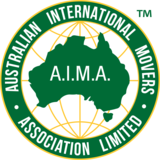VIA DEPARTMENT OF AGRICULTURE, WATER AND THE ENVIRONMENT
Welcome to the seventh edition of the Department of Agriculture, Water and the Environment’s (the department) general updates for the 2019-20 Brown marmorated stink bug (BMSB) risk season.
We have reached the end of another BMSB season, and the department is busy planning and preparing measures for the 2020-21 BMSB risk season, which will soon be upon us.
This issue contains a summary of the 2019-20 BMSB risk season.
2019-20 End of BMSB season
An Import Industry Advice Notice was published on 2 June 2020 announcing the end of the BMSB risk season on 31 May 2020.
Please refer to the Industry Advice Notice 79-2020 for further information.
Summary of 2019-20 BMSB risk season
This 2019 – 20 BMSB risk season comprised over 150,000 containers that were subject to BMSB measures including 10,784 LCL / FAK containers. 43% of these containers were treated offshore and experienced faster border clearance.
The introduction of the Seapest system this season for processing LCL / FAK consignments at the container level, instead of the FID level, saw 10,784 containers being declared by Master Consolidators. Of these 48% were automatically processed through the Seapest system without the need for intervention by assessing or inspecting officers. In addition 41% of LCL / FAK containers were declared as being treated offshore.
The department approved five entities for Safeguarding Arrangements. Safeguarding provides an alternative clearance option for goods subject to BMSB measures. This scheme will continue for the 2020-21 season and the department encourages those companies who are able to meet criteria to safeguard their supply chains against hitchhiker pests to apply.
There were approximately 300 roll on roll off (RORO) vessels that were required to complete Seasonal Pest Questionnaires as part of on arrival reporting.
Most common concerns
Most concerns identified during the season were around onshore treatments, particularly when containers were packed in such a way as to not allow for treatment to be conducted inside the container effectively.
- Backlogs of up to 4 weeks were experienced for BMSB fumigation treatments
- Delays were experienced of up to 12 weeks for containers that required secure unpacks at Class 4.7 Approved Arrangements to adjust containers not packed appropriately for effective in container treatment.
The Department recommends to avoid delays at the border that consignments are treated offshore.
Offshore BMSB Treatment Providers Scheme
For the 2019-20 BMSB risk season, the offshore BMSB treatment providers’ scheme approved a total of 218 offshore treatment providers across 27 countries.
Throughout the season, 298 desktop assessments of offshore treatment providers were completed, as well as 63 on-site offshore treatment provider audits. These audits were conducted by both the department and the New Zealand Ministry for Primary Industries.
Six offshore treatment providers were suspended during the course of the season, with 2 being reinstated after demonstrating they had addressed the non-compliances that led to their suspension.
Detections
Factoring in the expansion of target risk countries from nine to 32 for the 2019-20 BMSB season, there were fewer post biosecurity intervention detections of BMSB, both alive and dead, this season compared to the 2018-2019 BMSB risk season. This shows that the biosecurity policy was successful in managing the risk posed by BMSB.
- Up until 4 June 2020, there were 25 live and 183 detections of dead BMSB at Biosecurity intervention points. Post Biosecurity comprised 4 live and 14 dead BMSB detections.
- Live BMSB were found on 11 RORO vessels either by crew during vessel self-inspections or by Biosecurity officers on arrival. Two vessels presented an unacceptable biosecurity risk and were directed to leave Australian waters.
- Interestingly, 4 live BMSB were found in returning travellers luggage at our airports. The department does not intend to include travellers as part of its seasonal measures however this demonstrates the true hitchhiker nature of the pest.
Further information
Seasonal Pest Policy, Compliance Division
Email: [email protected]
Website: agriculture.gov.au/BMSB
